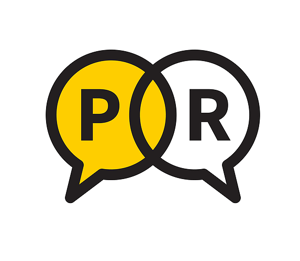Topic:
Demand Generation
One of the biggest challenges for startups operating in congested markets is demand generation. Unlike lead generation, which only focuses on the initial step of the buyer's journey, demand generation is a more heavily involved process that takes every point along the buyer's journey into account, which is incredibly difficult for new brands to measure. If you are an entrepreneur or startup leader, you need to know what excites your customers about your product or service to generate qualified leads, which is where demand generation plays an essential part in your business.
Without getting technical, demand generation focuses on nurturing potential customers into long-term customer relationships. It helps to both acquire customers and keep old ones coming back and should encompass all of your marketing initiatives to reach any key marketing goals. Demand generation has many elements, which could seem overbearing to startups developing their marketing strategy. However, there are a few keys elements startups should incorporate to get their demand generation off the ground.

The demand generation process begins by attracting visitors and converting them into leads. Then your content or marketing platforms nurture the prospects until they are well-informed enough to make a purchase. At this stage, they are a qualified prospect. However, not all qualified prospects are ready to make a purchase just yet, so the nurturing continues until you finalize the sale. The business-customer relationship is not over once the sale is complete. You can continue to build that relationship by asking for feedback, sending them content on updates about your products or services, or offering deals for future purchases. Afterall, 84% of B2B decision-makers start the buying process with a referral.
Throughout the entire demand generation process, your marketing team gains valuable insight into the behavior of the elements that entice visitors to become leads, then customers. Having this insight is incredibly useful for startups who may not know which demographic or niche their product or service appeals to the most. By analyzing visitor conversion rates and close rates, your marketing team can optimize your demand generation strategy to maximize ROI. Having a successful lead generation engine is an essential component for understanding your customers and knowing your target audience. Not to mention, it is paramount to the long-term viability of your company.
Since you are a startup, your brand is more than likely unknown. It is also hard to get people to make purchases if they know little about your business. Luckily, there are many methods your startup can utilize to generate awareness about your business, your products or services, establish yourself as an informative leader, and what sets you apart from other already established businesses in similar industries. These methods include:
If your startup can host an online webinar with an industry-leading magazine, it is a great way to legitimize your company in that respective sector. Say you run a fashion startup, and were able to host a webinar with Vogue, it signals to potential customers that if Vogue trusts your product enough to support a webinar they can too. More importantly, they can invite people from their list and even give you the attendee list to target with email marketing. Of course, your startup should focus on industry-specific magazines and online venues.
Pro tip: Find an online industry magazine with a large database of users in your industry. Often, they will host the webinar for you and provide the contact info of everyone who registered for the webinar regardless if they attended or not. These events can jumpstart your database building campaign.
 Modern advertising platforms enable many levels of targeting. It's the targeting that enables new startup businesses to invest in ads that only your ideal prospect will see. You can find qualified leads through targeted advertising on the top online platforms such as LinkedIn for B2B customers, Facebook is well suited for B2C customers. Google AdWords is the king of digital advertising because it provides ads based on search terms in google and this enables startups to "buy" their way to the first position in search results. In many cases, the ads lead to a landing page on your company's website, which entices visitors to contact you for more information about their specific search inquiry. In other cases, the ads are called "lead ads" where the form sits on the social media platform which reduces the friction in the conversion into a lead.
Modern advertising platforms enable many levels of targeting. It's the targeting that enables new startup businesses to invest in ads that only your ideal prospect will see. You can find qualified leads through targeted advertising on the top online platforms such as LinkedIn for B2B customers, Facebook is well suited for B2C customers. Google AdWords is the king of digital advertising because it provides ads based on search terms in google and this enables startups to "buy" their way to the first position in search results. In many cases, the ads lead to a landing page on your company's website, which entices visitors to contact you for more information about their specific search inquiry. In other cases, the ads are called "lead ads" where the form sits on the social media platform which reduces the friction in the conversion into a lead.
Pro tip: Use a marketing platform that integrates directly with your advertising platform so leads flow directly into your marketing platform for automation and nurturing.
Once a visitor is on a landing page, they are encouraged to exchange their information to download educational information. A lead magnet is essentially any asset that entices visitors to exchange their personal information, such as their name, phone number, email, or address. You can build lead magnets for each stage of the buyer's journey, from awareness to consideration, to decision.
Pro tip: Once your landing pages with lead magnets are in place, create a targeted advertisements to funnel traffic to the lead magnet to increase your database of prospects.
 Startups should participate on multiple social media platforms since prospects search for solutions in multiple areas, social media being one of them. There is no doubt social media is a proven marketing tool and can help spread your message. Businesses should be property represented on all the appropriate social media channels where their prospects engage. The opportunity with social media is building a list of followers and extending your reach. You may already know that social media platforms have become "pay to play" where there is no real opportunity for a post gaining organic views. Therefore, startups must gain followers or pay for advertisements to gain visibility. In order to make progress with social, you need a focused resource that manages the channels and engages with people in your target industry.
Startups should participate on multiple social media platforms since prospects search for solutions in multiple areas, social media being one of them. There is no doubt social media is a proven marketing tool and can help spread your message. Businesses should be property represented on all the appropriate social media channels where their prospects engage. The opportunity with social media is building a list of followers and extending your reach. You may already know that social media platforms have become "pay to play" where there is no real opportunity for a post gaining organic views. Therefore, startups must gain followers or pay for advertisements to gain visibility. In order to make progress with social, you need a focused resource that manages the channels and engages with people in your target industry.
Pro tip: In order to make progress with social media and build a list of followers, businesses should invest in a focused resource that manages the social channels while engaging with leaders in your target industry. SparkToro is a new social media targeting tool founded by Rand Fishkin previously from Moz.
For small businesses and startups, hosting a podcast is a terrific format to share your specific expertise in your industry. A good way to start is to have a business leader in your startup participate in podcasts about how your business solves problems, the product or service it provides, and why customers can trust your business to deliver results. If you have the time to invest in hosting the podcast for the long haul, then consider creating your own podcast. Many businesses record zoom podcasts and then render both the video version and audio versions for their audience to subscribe. If you choose to create your own podcast, I found this podcast resource to be a pretty comprehensive guide.
Pro tip: If your company does not have the stomach to invest in the long haul for your own podcast, then consider a campaign to become a guest speaker on established podcasts. You can then share the podcasts in social media or a blog about the interview. Here is one of our blogs where we embedded a podcast where we were a guest speaker.
Content creation and content marketing brings visitors in and gets eyes on your website. Whenever you write and publish blog articles, send out notifications to your email database so they know about it. More eyes on your content equals better search rankings, which can help expand your prospect database. It is best to create a content strategy first which is finely tuned to your ideal customer so the content will resonate with them. Having optimized and finely-tuned content helps attract the right visitors and builds trust with your audience as you educate them.
Pro tip: Create content in clusters by publishing detailed "pillar" content that provides an in depth look into a topic and then a series of related topics that link back to the pillar content. This approach will improve the search rank for all of the content in the cluster.
 Public relations is a good way to rapidly build a startup's company image. You can deliver press releases, briefs, case studies, magazine articles, as well as many other forms of content to generate awareness and build an industry-leading and trustworthy company image. Many startups align their PR plan with their digital marketing strategy to improve the impact of both.
Public relations is a good way to rapidly build a startup's company image. You can deliver press releases, briefs, case studies, magazine articles, as well as many other forms of content to generate awareness and build an industry-leading and trustworthy company image. Many startups align their PR plan with their digital marketing strategy to improve the impact of both.
Pro tip: Distributing a press release with a focus on trade magazines in your industry vertical will improve the overall visibility while also generating authoritative inbound links to your website which in turn boost SEO performance. We use GlobeNewswire for our distribution service.
If you want to get demand generation right for your business, it is preferable to align a sales and marketing with the help of an integrated sales CRM and marketing automation platform. This helps to feed prospects that sales generates to the marketing database for nurturing and more fluidly feed qualified prospects to sales when they become sales-ready leads. You can also implement lead scoring to highlight prospects that are qualified for sales outreach. And as your company gains more customers, the same platform can nurture them to offer referrals to your business.
Pro tip: Hubspot has a Growth Platform and special pricing for startups to help businesses manage all aspects of their sales, marketing and service tasks in one unified platform. Request a Hubspot Demo now.
Getting demand generation right for a startup requires an extensive process of content creation, building your audience, and establishing yourself as an industry leader. However, the ROI is worth the effort. To ensure your startup gets on the right track, work with a marketing agency to help you create and execute your demand generation campaigns. At Bristol Strategy, we are a full-service inbound marketing and sales agency and have helped numerous startups reach the next level in their respective industry. Feel free to contact us today to learn more about our marketing services.
If you are interested in learning more about demand generation, please download our eBook titled "Guide to Demand Generation Marketing."
Ask us about our unique approach that creates a full-funnel "inbound" engagement model for your business that attracts and converts digitally engaged prospects.